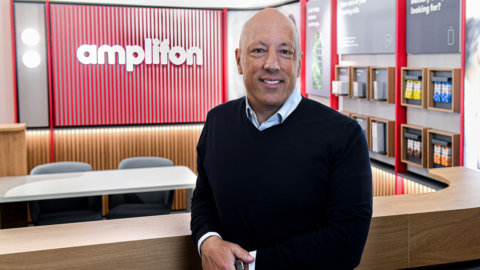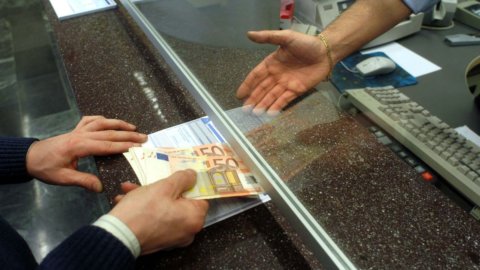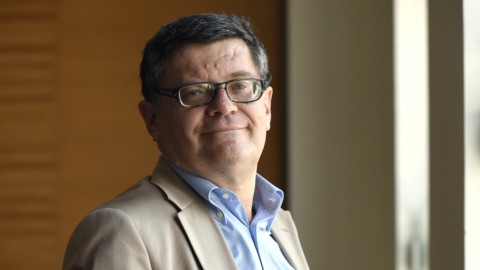The astronauts when they look at the Earth from their portholes, and they are the ones who look at it with the best perspective, they see an almost perfect globe whose surface is covered by more than 70% of water, concentrated above all in the oceans which are like a connective liquid that connects the continents. A vision that shows how fundamental water is for our planet. Oceans and seas are an essential heritage for man, they host a large number of life forms, they influence the climate, they have basic sources of food and they give economic wealth and well-being. To draw public attention to the importance of safeguarding their health, World Oceans Day was established for 8 June.
To propose the World Oceans Day was the Canadian government in 1992 at the Earth Summit held in Brazil in Rio de Janeiro, in 2008 the anniversary was recognized by the United Nations. To celebrate the Day many initiatives will be held all over the world, including in Italy there will be numerous including the characteristic "Bringing the sea into the city" created in Milan by the non-profit Marine Stewardship Council, in which a completely blue lawn is spread over Piazza San Carlo to host games and meetings. To learn more and better understand what happens to the oceans and seas, what their condition is and what is being done to protect them, we talk to Domitilla Senni, spokesperson for Mediterranean Recovery Action, a non-governmental organization active in the recovery of marine ecosystems in the Mediterranean.
They are currently engaged in the Adriatic Recovery Project campaign for the establishment of a Fishery Restricted Areas (FRA), i.e. an area in the international waters of the Adriatic where fishing is closed or severely reduced. Senni is the coordinator of this working group. Here is her point of view.
Why a day dedicated to the oceans?
“To remember the importance of the oceans for the planet and for our species. Unfortunately, the oceans are subject to a series of impacts, the first of which is the exploitation of its living resources: fishing".
This day of the oceans has existed for twenty-seven years, for eleven it has been recognized by the UN and therefore enormously visible. Are initiatives like this useful?
“This day cannot be an isolated event, it must solicit a whole series of campaigns by stakeholders, people who love, respect and work with the sea, to raise public awareness throughout the year on the problems they afflict him. But also for solutions. I believe this day serves to inspire people to mobilize for the protection of our oceans. This is very important because it sends a political signal. In the end, the decisions are always political in nature”.
The Senni, Roman, with a one long militancy in environmental associations, 17 years in Greenpeace, of which 7 as responsible for Italy, an active participation in Ocean2012, a large coalition of 170 organizations from many countries to promote the reform of the common fisheries policy (CFP), many other especially international experiences, she was a member of the Commission for the Italian Ocean and the National Council for the Environment, thus introduces us to the subject. The images of huge islands of plastic waste carried by currents are now almost a repertoire, a standard of ocean pollution. Recently one has also been identified in the Tyrrhenian Sea between Corsica and Elba in what is considered a cetacean sanctuary.
How endangered are our seas?
“Well the Mediterranean is particularly at risk because it is a semi-enclosed sea. There is little exchange between the great oceans and our basin, the waters regenerate once every 80 years, therefore it is a particularly fragile sea, it is a highly anthropised area and there is considerable development and overbuilding of the coastal strip. Plastic has struck the collective imagination because it is visible. Everything that happens under the surface of the water is unfortunately more difficult to communicate because we don't see it with such impactful and striking images as the islands of plastic but in recent decades there has been a great transformation of marine ecosystems also due to climate change . There has been much talk of the loss of large coral reefs but climate changes also lead to ocean acidification with a change in the distribution of marine species. A very complex, very profound and very worrying phenomenon is taking place, and human activities are also taking place in this global scenario, such as for example bottom trawling, a fishery that plows the seabed”.
There are many causes of risk for oceans and seas and the life they contain. Difficult to prioritize rankings.
“One responsible for the impoverishment is the exploitation of destructive fishing, then there are also the impacts due to climate change, drilling for the search for hydrocarbons, maritime transport which affects the migratory routes of some pelagic species or large mammals such as whales or dolphins”.
Oceans and seas, precisely because of their vital importance, also attract a lot of attention. Senni and MedReAct are the protagonists of an initiative concerning the Adriatic Sea, a project that has created a protected sea area, theAdriatic Recovery Project which is promoted and supported by a number of civil society organizations and research bodies.
What is it about?
“This project was born in 2016 together with the Marche Polytechnic, Standford University (USA) where excellent Italian researchers work, Legambiente, Marevivo and MedReAct which coordinates this whole group. We decided to intervene in the Adriatic because it is the most productive sea in the Mediterranean but also the most overexploited. There is a huge fishing intensity there. About half of the catches of Italian fish products come from the Adriatic, so it is a very important basin also from an economic point of view. A complicated and difficult situation. We tried to promote some innovative measures which had not been fully utilized compared to other fisheries management tools. The Adriatic is a very shallow sea with an average depth of 70 metres, however it has two depressions, one is in the center of the basin, the Fossa di Pomo, the other is to the south, the Southern Fossa of the Canale di Otranto. We have collected the evaluations and the appeal of the researchers who for 15 years have been asking for something to be done in the Pomo Pit because right there there are reproduction areas of some very important species for fishing such as scampi and hake. There is a scampi nursery which is considered the most important in the Adriatic if not in the entire Mediterranean. In 2015, with a bilateral agreement, Italy and Croatia closed the pit to fishing for a year. In 2016 Italy reopens fishing in that area and in a few days all the benefits of the closure are reaped. A sort of own goal for the navy. In 2017 we presented to the General Commission of Mediterranean Fisheries, a regional body that manages fishing throughout the basin, the proposal to establish a Fishery Restricted Area (FRA) precisely in the Fossa di Pomo area. In October, the Commission implemented it and today there is a part completely closed to fishing for small pelagics and there are two buffer zones divided between Italy and Croatia”.
What are your results after two years?
“In the Mediterranean there are eight FRAs, almost all on paper, that of the Fossa di Pomo is the first that is actually implemented, there are controls, there is a monitoring plan, there is a considerable effort to make it work and it is working. Last week in Croatia the first results of the monitoring that was conducted in the pit were presented by the researchers and they gave some very interesting data. The biomass of scampi and hake is increasing significantly despite the fact that the pit has only been closed for two years”.
How did the fishermen and the local communities react?
“We conducted a survey in both Croatia and Italy and 87% of the fishermen we interviewed said it is working, they recognized the value of this measure and are supporting it, which was not a given two years ago”.
An encouraging result for the future?
“We presented a proposal for a second reserve in the lower Adriatic in the Strait of Otranto which is a fundamental area, a link between the Adriatic and the rest of the Mediterranean, a migratory route for many vulnerable species, tuna, swordfish, cetaceans, whales, dolphins and in addition it also contains an almost unique biodiversity, there is one of the last colonies of elongated disitella a once very widespread bamboo coral, an essential ecosystem because it is a refuge and reproduction area for various species. The pit is divided into two parts, the Italian one and the Albanian one. The Italians are in agreement with the closure, the Albanian fleet is not included in the community fishing regime, they have different rules. This creates a concurrency problem. Intervening in that area with a FRA would not only help ecosystems but also improve fisheries management by creating shared rules for all and would also provide for the Albanian fleet to comply with the control measures currently applied to the Italian fleet. We talked about it with the ministry, they have to express themselves ".
IWho is your work aimed at? Are your interlocutors the institutions or the public opinion?
“Without public opinion our work would be much more tiring so we need to inform, it's essential and we do our best. We need to intervene on governments and we also need to interact with local communities, above all we need credibility from a technical and scientific point of view, which is why we collaborate a lot with prestigious universities".
Come into contact with many institutional, academic and associative realities. A privileged point of view. Have you noticed any changes in guidelines?
"Surely. For example, as far as the Adriatic is concerned, the success of the Fossa di Pomo was very encouraging for the researchers, seeing their studies finally translated into decision-making measures was spectacular, there were some who were moved, it gave them courage, they started to be more proactive and say oh well we could do something in this other area here too”.
Speaking of doing, is there anything our readers could do to make a contribution, however small, on Oceans Day?
"Certain. Of course. In the meantime, if they want to find out more, they can visit our website and Facebook page and then, since we're all on Twitter, they can tweet Minister Centinaio and Undersecretary Manzato the request to support our proposal for FRA in the Otranto Canal. It takes less than 2 minutes and it could definitely help”.
You know that in these times many questions are asked about NGOs that often remain unanswered questions. The most common is: how do you support yourself?
“We receive funding for the projects we carry out from a consortium of American foundations that work for the protection of the oceans, among others there are The Leonardo Di Caprio Foundation, The Rockefeller Foundation, Oceans 5, you can visit the site. They converge on a number of projects around the world to protect the oceans. The Adriatic is the first project they have financed in the Mediterranean” he then points out “The major foreign donors see the Mediterranean as a lost case as far as marine protection is concerned because 85% of the species are overexploited, because there is a lot of fishing illegal, because it was mishandled. We decided to invest in the Mediterranean because we realized how little attention it received when we worked at a European level".
There is still a lot to say but let's end here. The rest will be the reason for a future meeting, perhaps for the opening of the FRA in the Otranto Canal.





